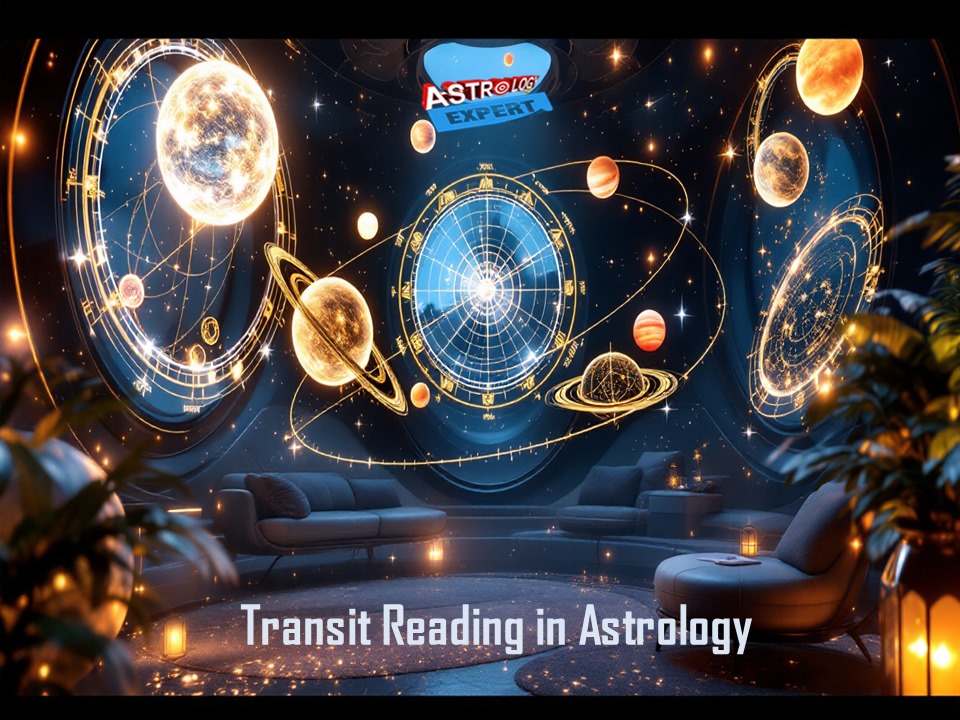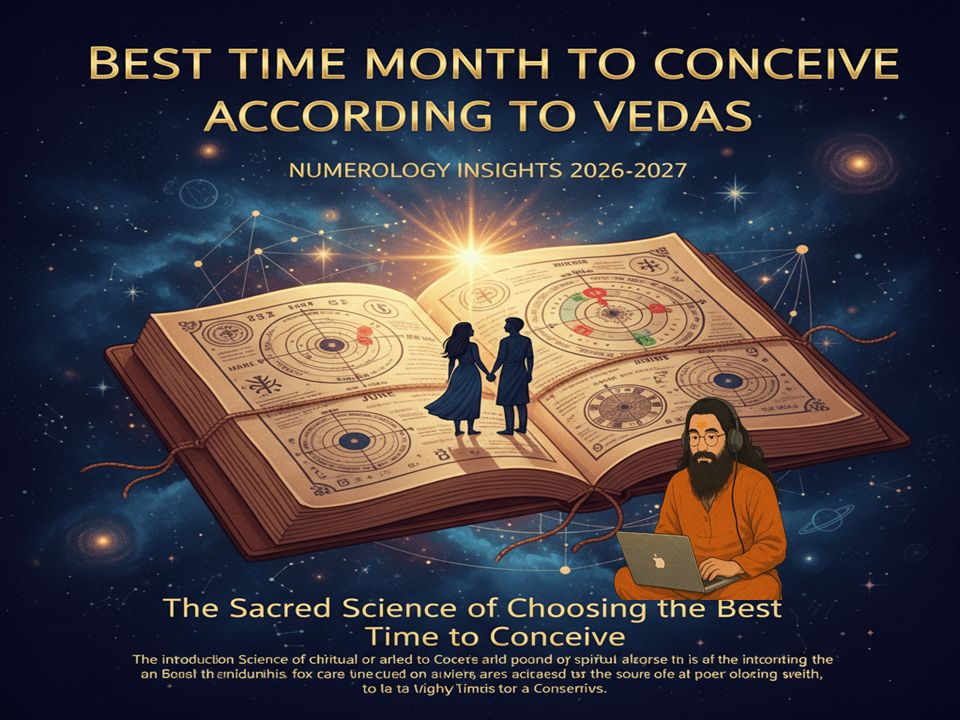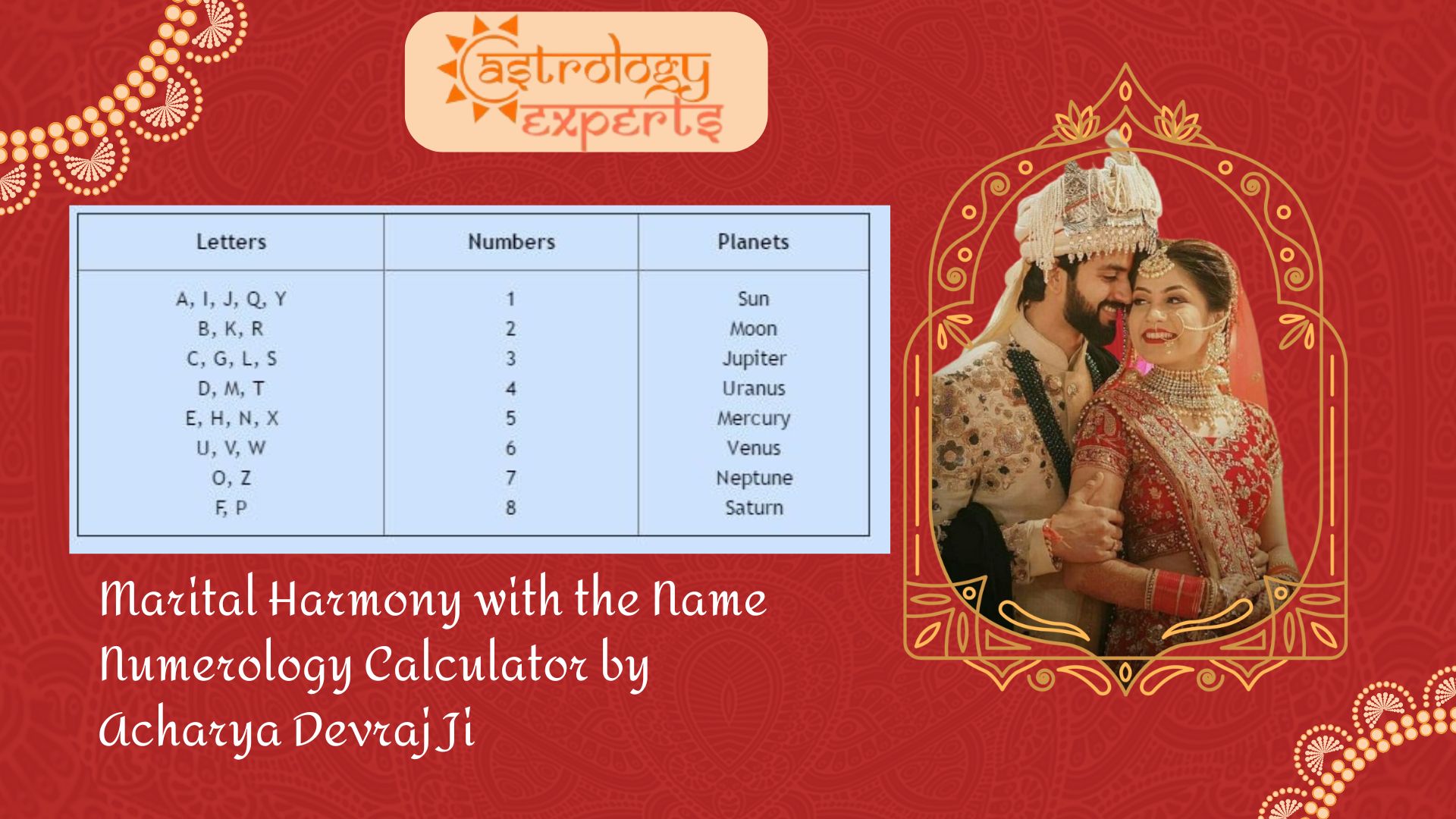Transit Reading in Astrology: How Acharya Devraj Ji Uses Planetary Transits to Guide Major Life Choices
A transit reading can show you when important changes may happen in your life. You might see signs of a job promotion, chances to take on more responsibility, or even moments when your work feels more meaningful. These readings can also highlight times when relationships become more important or when you find extra comfort and support. You may notice periods when you feel more connected or have a new spiritual insight.
Ever wondered why some days feel lighter, while others bring heavy moods or unexpected turns? The answer often lies with the planets. In Vedic astrology, “transit reading” is the practice of tracking the movement of planets and seeing how these shifts interact with your personal birth chart. Top experts like Acharya Devraj Ji in India use this method every day to spot patterns and predict possible life changes—from career moves and relationship shifts to times of growth or challenge.
Transit readings are at the heart of Jyotish (Vedic astrology) because timing is everything. By studying current planetary positions, astrologers can pinpoint the best windows for big decisions and help you understand why certain energies color your daily life. With the right chart in hand, Acharya Devraj Ji reveals how to read both subtle changes in mood and major events on the horizon, so you’re never left guessing.
Whether you’re hoping to plan a major step or simply want more insight into your emotional ups and downs, knowing how planets move—and what they’re up to right now—offers a clear, practical roadmap.
Transit readings can point out when you will face stress or experience growth. They help you spot the best times to move forward or when it’s better to slow down and wait. By knowing these patterns, you can make smarter choices and feel more confident about your next steps.
Understanding Planetary Transits: The Foundation of Transit Reading
Planetary transits are at the core of reliable astrology, providing a real-time link between your unique birth chart and the motion of the cosmos. Every planet shifts position in the sky at its own speed, sending ripples of influence through different areas of your life. An effective transit reading, like those offered by Acharya Devraj Ji, shows how this moving energy connects with your personal chart—pinpointing not just what’s happening out there, but how it lands for you.
What is a Transit in Astrology?
In astrology, a transit is when a planet in the sky moves to a new position and forms a relationship, or “aspect,” with one of the planets or points in your birth chart. Your natal chart is a snapshot of where all the planets were when you were born. It’s unique to you and never changes. Planets in motion—like Mercury, Venus, Jupiter, or Saturn—regularly pass through each zodiac sign and set off different energies depending on where they are.
Transiting planets interact with your natal chart by:
· Activating key areas—If a planet moves into your relationship zone, for example, you might see changes or opportunities in love.
· Triggering themes or events—Some planetary angles (called aspects) can kick up tension, while others flow smoothly and bring growth or luck.
· Influencing mood and energy—Quick-moving planets spark daily ups and downs. Slow-moving planets shape bigger life trends and lessons.
Why does this matter? Because every transit highlights a specific area of potential and challenge, based on the deep blueprint in your natal chart. This is why people born on the same day may feel similar trends, but the effects are always personal.

Purpose and Benefits of a Transit Reading
A transit reading aims to give you clarity about the timing of life’s twists and turns. It offers:
· Prediction: Get a sense of what’s coming—whether it’s a great time to start a new project, expect a shift in relationships, or be more cautious with your health or money.
· Guidance on timing: Learn the best windows for big decisions, like a job change or marriage, based on planetary support.
· Self-understanding: See patterns in your mood, motivation, or challenges, making life feel less random and more meaningful.
Acharya Devraj Ji’s approach is all about weaving the ancient science of Jyotish with practical, step-by-step insight. He uses your individual chart, tracks current planetary activity, and helps map out phases so you can move forward with confidence. With his readings, you’ll understand not just what kind of energy is in play, but how to work with it for your best outcomes.
How a Transit Reading Works: Method and Process
A skilled astrologer like Acharya Devraj Ji follows a clear process to reveal how planetary movements affect you:
1. Create your natal chart—This is made with your birth date, time, and place, forming the foundation for all future readings.
2. Compare current planetary positions—Overlay today’s planetary movements onto your natal chart. This shows which transits are active now or in the near future.
3. Identify aspects and cycles—Look for important angles (like conjunctions, squares, oppositions, trines) between current planets and your natal planets. These aspects tell whether a transit is likely to bring challenges, opportunity, or shifts in mood.
4. Highlight active houses and themes—Each transit affects certain life areas (career, love, health, etc.) depending on where it lands in your chart.
5. Interpret practical meaning—The astrologer explains what each transit could mean for your day-to-day experience and long-term plans, always relating insight back to your real-world goals.
Regular transit tracking helps you feel less at the mercy of the stars and more in tune with their rhythms. In the hands of an expert like Acharya Devraj Ji, this process turns astrology into a practical, trusted guide for choices both big and small.
How Planetary Transits Influence Your Daily Mood, Energy, and Planning
Planetary transits provide a day-by-day energetic weather report for your life. These cosmic shifts can explain why some mornings bring focus and optimism, while others call for patience or introspection. Tuning into transits isn’t just for curiosity—it’s a tool for daily clarity, emotional understanding, and sharper planning. Let’s break down how these shifting planets color your feelings and practical choices.
Everyday Effects: Moods, Motivation, and Energy Cycles
Fast-moving planets—Sun, Moon, Mercury, Venus, and Mars—have the most direct effect on your day-to-day mood and drive. Their positions can spark everything from energy surges to gentle lulls in your routine.
Here’s how these planets show up in real life:
· The Sun: Boosts confidence, self-expression, and purpose as it moves through your chart. You may notice bursts of energy in areas where the Sun connects with your natal planets.
· The Moon: The quickest mover, changing signs every 2-3 days. Expect shifts in your emotional weather, sensitivity, and needs. A Moon transit over your natal Venus could even spark a desire for comfort, beauty, or connection.
· Mercury: Governs thoughts, conversations, and decision-making. When Mercury forms strong aspects, you may find yourself more talkative, eager to learn, or facing mental restlessness.
· Venus: Colors your appreciation of pleasure, aesthetics, and harmony. A Venus transit can bring a light mood, easier connections, and opportunities for creativity.
· Mars: Drives motivation, assertiveness, and action. Positive Mars transits give you a push to start something new, tackle tasks, or stand up for yourself.
When several of these planets interact, you might experience:
· Strong motivation paired with irritability (Mars and Mercury)
· Emotional ups and downs, or moodiness (Moon aspects)
· Feeling social, creative, or romantic (Venus active in your chart)
· Spikes in self-confidence and leadership (Sun transits)
Being aware of these cycles allows you to plan better, knowing when to push forward and when to rest. It’s a bit like checking the weather before heading out—if you know a stormy energy is approaching, you can prepare instead of being caught off guard.
The Importance of Timing: Using Transits for Life Planning
In astrology, timing is as important as action. Transits help you spot the right windows for key moves—or guide you to pause when the stars suggest caution.
Astrologers use both fast and slow-moving transits for practical planning. Here’s how this shows up:
· Choosing Auspicious Dates (Muhurta): Want to pick the best time to launch a business, get married, or sign an important contract? Astrologers check for harmonious transits, avoiding tough aspects like planetary squares or oppositions that might signal obstacles.
· Anticipating Challenges and Opportunities: Outer planets like Jupiter, Saturn, Uranus, and Pluto move slowly, staying in each sign for months or years. These long stays highlight major themes—Jupiter bringing growth, Saturn enforcing life lessons, Uranus stirring change. Knowing when one of these is active gives you a heads-up for life shifts.
· Fine-Tuning Decisions: Even minor transits—such as the Moon forming a positive angle to your Sun—can give you the edge for small wins like negotiations, interviews, or creative projects.
Ways people use transit timing in planning:
· Scheduling important interviews or meetings on days with supportive Mercury or Sun aspects
· Moving house or planning events when Venus transits show harmony
· Starting health routines or facing challenges when Mars provides energy
· Using slow Saturn or Jupiter transits to commit to long-term goals
This approach isn’t about superstition—it blends intuition with celestial timing. By considering what’s happening in the sky, you not only feel aligned but can make big moves when the energetic currents are behind you. Astrology’s clock gives context to your instincts and brings confidence to every step.
Key Planets, Transit Durations, and Interpretation Essentials
Understanding which planets matter most in transit reading and how long their influences last can help you decode life’s patterns. Each planet moves at its own pace—some quick and lively, others slow and deeply impactful. Recognizing these differences allows you to spot the moments when tides turn in your personal story. This section covers the key planets, the typical duration and effect of their influence, and how major transits align with life’s biggest milestones.
Major vs. Minor Planets: Which Transits Matter Most?
Every planet in astrology plays a role, but not all carry the same weight when it comes to change. The difference often comes down to speed and the size of the impact.
Fast-Moving Inner Planets
These include the Sun, Moon, Mercury, Venus, and Mars. Their swift movements affect your daily rhythms, moods, and short-term opportunities.
· Sun: Moves through a sign in about 30 days. Influences ego, core purpose, and vitality.
· Moon: Changes signs every 2-3 days. Rules emotions, mood swings, and instincts.
· Mercury: Stays in a sign for 2-3 weeks. Impacts thinking, communication, and decision-making.
· Venus: Transits a sign for about 3-5 weeks. Influences love, pleasure, and social flow.
· Mars: Takes about 6-7 weeks per sign. Brings action, energy, and drive in bursts.
Because these planets move so quickly, their effects are immediate but temporary—think of these transits as waves you can ride on a day-to-day or week-to-week basis.
Slow-Moving Outer Planets
Jupiter, Saturn, Uranus, Neptune, and Pluto move slowly—sometimes crawling through a single sign for years. These planets command attention when they make strong connections to your chart, marking life’s turning points.
· Jupiter: Stays about 1 year per sign; full cycle is 12-13 years. Promotes growth, luck, and learning.
· Saturn: Takes 2.5-3 years per sign; full cycle is 29-30 years. Signals structure, lessons, and maturity.
· Uranus: Remains 7 years per sign; total cycle is 84 years. Brings change, freedom, and surprises.
· Neptune: Hangs around a sign for 14 years; needs 165 years for a full cycle. Activates dreams, intuition, and periods of confusion or inspiration.
· Pluto: Stays 12–20 years per sign; completes a full cycle in 248 years. Correlates with deep transformation or rebirth.
When these slow giants activate a key area in your chart, big shifts often follow—think career leaps, relationship milestones, or moves that set your life on a new path. These transits shape entire chapters of your personal evolution.
What a Transit Reading Can Reveal About Major Life Events
Astrology’s magic is best seen when transits sync up with real milestones. The outer planets, with their long cycles and powerful alignments, act as cosmic timekeepers for big life changes.
Here’s what a skilled transit reading often uncovers:
· Career Changes: Jupiter’s arrival at an important career house or aspect might bring promotions or bold opportunities. Saturn, meanwhile, can spark tests—a tough boss, new responsibilities, or a need to redefine your goals.
· Marriage and Relationships: Venus or Jupiter transits over partnership zones often signal wedding bells or serious commitments. Saturn’s pass might mean you’re called to address long-standing problems or let go of outdated attachments.
· Relocation: Uranus loves to shake things up. Its transits can spark the urge (or sudden necessity) to move, change cities, or travel—especially if it targets your home or travel sectors.
· Personal Transformation: Pluto and Neptune transits over sensitive chart points are famous for triggering deep personal change, healing, or awakening. Pluto pushes for renewal through challenges, while Neptune blurs old boundaries and helps you tap spiritual insight.
· Major Maturities and Returns: Cycle events like Saturn Return (around age 29-30) and Jupiter Return (every 12 years) encourage maturity, growth, and a clear sense of purpose. These are moments when people often start new chapters, pursue passions, or commit to lifelong dreams.
A good astrologer reads these cycles in the context of your birth chart, showing when support is strongest or when tests are likely. Transits don’t guarantee specific events, but they show what energies are active and where you might see the biggest shifts. By knowing what’s on the horizon, you can show up for your life with awareness, courage, and clarity on what to nurture—or what to release.
Specialized Transit Readings: Deep Dives into Key Influences
Specialized transit readings go beyond basic predictions. Acharya Devraj Ji uses this deeper approach to spotlight exactly which planetary energies are sparking real change, clarifying when and where the biggest shifts unfold in your life. By focusing on the transits of key planets—like Saturn, Jupiter, Venus, and the Moon—these readings become powerful guides to timing, self-awareness, and purposeful action.

Predicting Major Life Events Through Transit Reading
Astrologers like Acharya Devraj Ji are able to predict and time significant life milestones by tracking when outer planets form strong angles with your natal chart. These slow-moving giants—Jupiter, Saturn, Uranus, Neptune, and Pluto—point to life chapters rather than fleeting moments. For instance:
· Saturn returns and squares often align with big transitions such as graduation, career launches, settling down, or facing major tests.
· Jupiter transits contribute to rapid expansion—like promotions, new opportunities, or periods of luck.
· Uranus influences may spark sudden breakthroughs, moves, or dramatic lifestyle changes.
Acharya Devraj Ji pays close attention to not just the exact moment a transit is strongest but also the “shadow period” both before and after, which can prepare you for what’s coming. He overlays your natal chart with today’s planetary map, then pinpoints the most active houses and planets. With this method, the timing of events like marriages, career leaps, relocations, or healing cycles becomes clearer, helping you act at just the right moment.
Career Changes and Saturn, Jupiter, and Mars Transits
When it comes to professional shifts, three planets play a starring role:
· Saturn: Brings heavy responsibilities, pivotal tests, or the feeling that your work life must change to match your true values.
· Jupiter: Acts as a cosmic “green light,” ushering in opportunities, higher status, or job offers in line with your long-term growth.
· Mars: Fuels determination and bold action—common in times of job hunting, launching businesses, or stepping into new leadership roles.
A combination of these transits, like Mars energizing a Jupiter-influenced year or Saturn adding structure just as a new opportunity arises, often signals the most fruitful moments for a career change. Acharya Devraj Ji closely tracks the exact degree and angle of these planets to identify when you’re most likely to experience progress, turning points, or critical evaluations at work.
Venus Transits and Relationship Shifts
Venus transits illuminate what’s changing in your love life, friendships, and social world. These periods bring opportunities for:
· Engagements or marriages when Venus makes positive aspects to your natal Sun, Moon, or Venus.
· Important conversations about love, values, or commitments as Venus meets Mercury or the Descendant in your chart.
· Easing old tensions and opening doors for new connections, especially during harmonious alignments with Jupiter or Neptune.
The length of a Venus transit (usually several weeks) means timing is key. Acharya Devraj Ji advises planning proposals, heart-to-heart talks, or new beginnings around peak Venus cycles to harness supportive energies for lasting relationship growth.
The Jupiter Return: Unveiling Cycles of Growth and Luck
A Jupiter return happens every twelve years when Jupiter comes back to the exact spot it held at your birth. This is a cycle of new luck, doors opening, and the start of big adventures. People often feel more optimistic, ambitious, or ready to expand their horizons during these years.
Typical signs during a Jupiter return:
· You attract opportunities that match your passions.
· Travel, learning, or spiritual growth becomes more appealing.
· Long-held dreams suddenly feel within reach.
Acharya Devraj Ji sees this as an ideal window for bold decisions—startups, relocation, advanced degrees, or chasing aspirations that need extra confidence. Paying attention to your specific house placement for Jupiter will reveal what part of life is getting a boost.
Saturn Transits: Lessons, Responsibility, and Growth
Saturn’s transits are known for teaching lessons and prompting maturity. The most famous of these, the Saturn return (at ages ~29-30, ~58-60), usually brings:
· Clarity about your life’s direction.
· Endings or far-reaching commitments.
· A need to take charge or face unfinished business.
Even shorter Saturn transits serve as reminders to address challenges, build better boundaries, or set healthier routines. While these periods might bring pressure, Acharya Devraj Ji teaches that Saturn’s intention is always lasting strength and wisdom, not just hardship.
Retrograde Planets: What Does Their Transit Really Mean?
A planet in retrograde appears to move backwards in the sky—a signal to pause, rethink, or review. Mercury, Mars, and Venus retrogrades are the most noticeable in daily life.
· Mercury retrograde: Relates to rethinking communication, travel, and contracts. Double-check plans and revisit old conversations.
· Venus retrograde: Highlighted periods for re-examining love, values, or past relationships.
· Mars retrograde: Draws attention to frustration or stalled momentum. Not the best time to launch new ventures, but ideal for reassessing your drive.
Acharya Devraj Ji emphasizes using retrogrades for internal work. Instead of starting new journeys, focus on healing, closure, or refining your intentions until the planet moves direct again.
Tracking Moon Transits for Emotional Balance
The Moon moves quickly—changing signs every two to three days—producing ever-shifting waves of emotion and sensitivity. Tracking these lunar transits can help you:
· Notice patterns in mood shifts throughout the week.
· Plan social events, rest, or self-care on emotionally favorable days.
· Spot connections between specific Moon phases and your energy or productivity.
To use lunar transits for balance:
· Note when the Moon visits your Sun, Moon, or Venus signs; these are days for renewal and feeling most “yourself.”
· During hard Moon aspects (like squares or oppositions), build in more quiet time or simple comforts.
· Lean on grounding routines—sleep, hydration, gentle movement—when emotional weather feels stormy.
Moon tracking is the ultimate tool for daily self-care, helping you work with your feelings instead of against them. With simple awareness, you gain control and kindness toward your emotional ups and downs.
Quick Guide: Reading Your Next Transit Chart
Reading a transit chart can seem overwhelming at first, but with a little practice you’ll start seeing the clear story the planets are telling about your life right now. Transit charts compare the sky today to the exact sky when you were born, revealing how the planets’ current positions energize or test the unique areas mapped in your natal chart. Whether you want to plan for a big life event or just make sense of this week’s mood, this quick guide will help you spot the most influential patterns and know when professional advice from Acharya Devraj Ji could make all the difference.
Key Steps and What To Look For in Your Transit Chart
If you’re new to transit charts, following a step-by-step checklist can help you cut through the noise and focus on what matters most:
1. Get Your Natal Chart Ready
o You need your exact birth date, time, and place. Free tools or your astrologer can create this for you.
2. Obtain Today’s Planetary Positions
o Find out where the planets are right now. Many online sites can show you a current planetary map (called an “ephemeris”).
3. Overlay the Two Charts
o Your current transits are read by comparing today’s sky to your birth chart: which planets are meeting your natal planets, and in what signs and houses?
4. Spot the Key Aspects
o Check for close connections between today’s moving planets and your birth chart. The most important angles are:
§ Conjunction (0°): Extra strong, brings focus or a fresh start.
§ Square (90°): Brings tension or growth through challenge.
§ Opposition (180°): Creates turning points or relationship themes.
§ Trine (120°) and Sextile (60°): Smooth, helpful energies and lucky breaks.
5. Zero In on the Houses
o Notice which areas of life are highlighted (finances, relationships, career, family, etc.). A planet moving into a new house or sign signals a focus shift.
6. Check for Planetary Returns or Stations
o These are major cycles when a planet returns to its birth spot or changes direction (retrograde/direct), often marking big life chapters.
7. Layer the Stories
o No single transit tells the whole story. Look for groups of aspects or repeated themes—like several planets focusing on your “work” or “home” houses.
8. Pay Attention to Slow vs. Fast Movers
o Jupiter, Saturn, Uranus, Neptune, and Pluto signal long-term changes when they aspect your chart. The Sun, Moon, Mercury, Venus, and Mars show day-to-day moods and shifts.
A simple way to start: Track the Moon’s movement each week. See how your feelings or plans match its position in different signs or houses. Then, layer in bigger transits as you gain confidence.
Quick Checklist:
· Have my most personal planets or angles been activated?
· Are there repeating or overlapping transits pointing to a life area?
· Are important planets (Jupiter, Saturn, Uranus, Pluto) forming strong aspects?
· Am I in a retrograde or planetary return phase?
· Do changes or events in my life match the transit patterns?
When To Seek Guidance from an Expert Like Acharya Devraj Ji
Transit reading gets much deeper—and potentially life-changing—when complex patterns appear or you face decisions with long-term impact. Here’s when reaching out to an expert like Acharya Devraj Ji is especially valuable:
· During Major Planetary Transits
o Jupiter, Saturn, or slow-moving planets crossing important chart points often trigger big events (career shifts, marriages, moves, challenges, health changes).
· When Multiple Transits Overlap
o If several strong transits pile up in one life area, or you feel pushed and pulled in different directions, you’ll benefit from expert help to untangle the meaning.
· Navigating Tough or Confusing Energy
o Retrogrades, “malefic” transits, or intense aspects can bring up uncertainty, doubt, or unexpected blocks. Acharya Devraj Ji can explain the deeper lesson or suggest the right time for action and remedies.
· Making Critical Life Choices
o Planning a major move, changing careers, marriage, or financial investments all warrant a detailed look at your transit picture. An experienced astrologer like Acharya Devraj Ji uses structured methods grounded in scientific and Vedic wisdom—going far beyond generic online charts.
· Personalized Remedies and Timing
o Some challenges need more than generic advice. When transits affect sensitive houses or activate dasha periods (key planetary cycles), Acharya Devraj Ji can recommend tailored rituals, mantras, or practical steps for support.
Regular check-ins with an expert, especially during milestone transits, help you ride the highs and manage the lows most effectively. Acharya Devraj Ji’s mastery in Vedic, KP, and Nadi astrology brings clarity where online tools can’t, making sure your choices are both well-timed and wise for your unique path.
Conclusion
Transit readings open a clear window into your life’s timing, energy, and big moments. By watching the movement of planets, you get clues not just about what’s ahead, but about where you are right now. This insight helps you choose the best times for decisions, understand your own patterns, and make change with more confidence.
Trusted guidance from an expert like Acharya Devraj Ji can turn these patterns into practical steps. If you feel stuck or want to plan an important move, don’t hesitate to explore a detailed transit session.
Thank you for reading. What patterns have you noticed from recent transits in your life? Share your experience below or reach out for your next personal transit review.
FAQ: Understanding Transit Reading in Vedic Astrology
What does “transit” (Gochar) mean in Vedic astrology?
A transit refers to the current movement of planets through the zodiac signs. Astrologers track these movements in real time and compare them to your birth chart, mainly from your Moon sign. This helps predict the kind of influences or events you might face at a given time.
How is transit reading different from a birth chart reading?
A birth chart shows your life’s blueprint based on the exact positions of planets at your birth. Transit analysis looks at how today’s planetary movements interact with your natal chart, showing what’s likely to happen now or soon—like weather forecasts for your life.
Why are transits mostly judged from the Moon sign?
The Moon sign represents your emotions, instincts, and day-to-day experiences. Planetary movement around your Moon sign tends to have stronger direct effects on your personal life than your Sun sign or ascendant.
Which planets have the biggest impact in transit readings?
Jupiter, Saturn, Rahu, and Ketu (lunar nodes) create the longest and strongest effects. Their transits can shape bigger life themes (career, health, family), while fast-moving planets (Sun, Moon, Mercury, Venus, Mars) set the tone for shorter periods.
How long does each planet stay in a sign during transit?
· Moon: about 2.5 days
· Mercury: 2–3 weeks
· Venus: 3–4 weeks
· Sun: 1 month
· Mars: 6 weeks
· Jupiter: 1 year
· Saturn: 2.5 years
· Rahu/Ketu: 18–19 months Slow planets like Uranus, Neptune, and Pluto also matter, but Vedic astrology focuses more on the above.
How do houses from the Moon sign affect transits?
A planet’s effect depends on which house it’s passing through from your Moon sign. For example, Jupiter transiting your second house may boost income; Saturn in the fourth can signal home challenges.
What is Sade Sati and why is it important?
Sade Sati is when Saturn moves through the house before, of, and after your Moon sign, lasting about 7.5 years. It’s known for testing patience, bringing work or home stress, but also pushes for personal growth and responsibility.
What questions can a transit reading answer?
Transit readings can help with:
· Timing a career move or promotion
· Understanding relationship ups and downs
· Deciding when to invest or save
· Planning travel or study
· Spotting possible health warnings
· Preparing for periods of luck or challenge
How accurate are transit readings?
Transits help time likely trends and events, not guarantee fixed outcomes. Accuracy improves when combined with your Dasha (life period) cycles and specific birth chart details.
What is Ashtakavarga in transit interpretation?
Ashtakavarga is a scoring system showing how strong or weak each planet’s transit is for you, house by house. Higher scores mean more positive or noticeable results from that planet’s movement.
Can transits predict exact events?
Transits highlight periods of opportunity or caution, but not exact events. Think of them as setting the mood or themes, while your own actions, choices, and ongoing Dasha periods shape details.
Do negative transits always cause problems?
Not always. A “bad” transit can push growth, help you break old habits, or lead to needed change. Remedies (mantras, rituals, lifestyle tweaks) can soften harder effects.
Should I only focus on major transits like Saturn and Jupiter?
Major transits set the big themes, but short transits by Mercury, Venus, and Mars can explain day-to-day changes—like mood, energy, or travel. Both slow and fast transits matter.
How can I use transit reading for planning?
Check transits to pick better timing for big decisions—like job changes, moving house, or new partnerships. Many consult transit charts before marriage, travel, or major investments.
Is transit reading the same as horoscope predictions in newspapers?
No. Generic horoscopes use Sun signs only. Individual transit readings use your full birth chart, especially the Moon sign, for far more detailed and personal insight.
What can a transit reading reveal about major life events?
Transit readings highlight periods when important life events are likely—think promotions, new relationships, or spiritual breakthroughs. Astrologers look for active planetary movement over key points in your birth chart to pinpoint these windows.
How does a transit reading show periods of stress or personal growth?
Transits can indicate rough patches or times of growth. Challenging aspects like squares or oppositions often bring stress or obstacles, but they also push you to grow. Easier alignments, such as trines or sextiles, suggest smoother periods where things tend to go your way.
Can a transit reading tell me when to take action or hold back?
Transits help spot the best timing to act or pause. Harmonious alignments encourage you to move forward, while difficult aspects warn to slow down or avoid big decisions until the energy shifts.
How do planetary cycles like Saturn Return or Mercury Retrograde affect me?
Saturn Return (around ages 28-30, 58-60) marks a shift into new maturity, often bringing big changes or challenges. Mercury Retrograde happens about three times a year, signaling a time for review and patience—misunderstandings or tech hiccups are common. Eclipses act as turning points that can speed up change in the areas of life they hit.
How long do transits usually last?
It varies by planet. The Moon can trigger events in hours, while the Sun, Mercury, or Venus affect days or weeks. Jupiter transits can last about a year per sign, and Saturn spends about 2.5-3 years in each sign. Outer planets like Uranus, Neptune, and Pluto work over many years, shaping deep changes.
What’s an example of a “good” transit in career or relationships?
If Jupiter moves through your 10th house of career, it’s a strong time for a promotion, more recognition, or finding new purpose at work. When Saturn crosses your 7th house, relationships are tested—some will end, others will get much stronger. Both represent growth but in different ways.
Are stressful transits always negative?
Stressful doesn’t mean bad. Hard aspects can push you to make overdue changes, face fears, or develop resilience. The discomfort often leads to long-term gain.
How are Western and Vedic transit readings different?
Western astrology uses the tropical zodiac, focusing on your Sun sign and planetary aspects. Vedic (Jyotish) uses the sidereal zodiac, emphasizing your Moon sign (Chandra Rashi) and the houses from the Moon, which can make predictions feel different.
Can transit readings predict exact events?
Transit readings signal times when it’s likely for certain themes to come up, but they don’t predict exact events. How you respond shapes your results.
How often should I get a transit reading?
A yearly update helps spot broad themes. Major life changes might call for more frequent check-ins—think 2-3 times a year or when you sense changes brewing.
Got more questions about your upcoming transits? Want to see how planetary cycles might shift the energy in your life soon?
Try a custom reading based on your exact birth details to see what energy is strongest for you this year.









